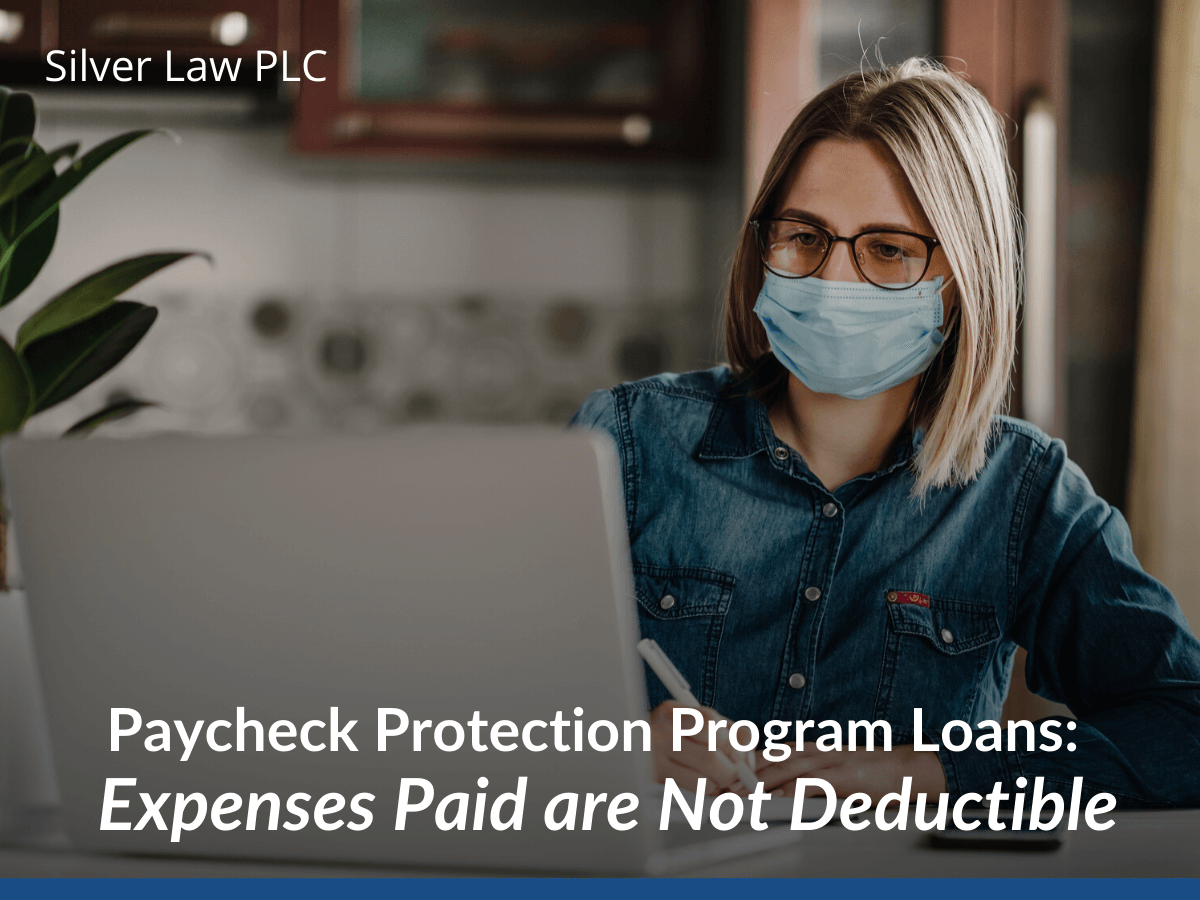Many businesses have had to close or move their operations online because of the COVID-19 quarantine across the country. Some businesses have taken a hit to their profits, but they’ve been able to get by with some adjustments in the way they serve customers, such as by offering services online or by offering delivery of their products. However, some businesses, such as restaurants, have not been able to serve customers. Many restaurants have had to close temporarily, and some have even gone out of business.
Congress passed the Coronavirus Aid, Relief, and Economic Security Act to help these businesses stay afloat during the quarantine. One aspect of the act is the Paycheck Protection Program loan, which gives money to businesses to pay for things like payroll expenses, employer-sponsored healthcare and other benefits, a business mortgage or rent, or utilities. It comes with a variety of qualifications and stipulations that a Chandler tax attorney can help you assess.

Though the program is designed as a loan, the debt can be forgiven so businesses do not have to pay it back. Forgiveness is granted for payments made for covered expenses during the prescribed 8-week period, which starts on the loan’s origination date. So, if businesses use the money in the way it was intended, they will not have to pay it back.
In keeping with that spirit, any money spent on covered expenses also does not count as income that is subject to taxation. It wouldn’t make sense to get a huge loan that you don’t have to pay back, only to have to pay thousands in taxes on that money at the end of the year. The key is to only spend the money on the allowable expenses. Otherwise, the loan must be paid back. So if you qualify for this loan program, make sure to speak with your Chandler or Gilbert tax lawyer about these allowable expenses.
Typically, businesses can deduct the money they spend on things like rent, utilities, or benefits. But if the money they are spending on these things is not counted as taxable income, then it doesn’t make sense that they should be able to deduct those expenses from their tax obligations – so reasons the IRS.
That means that if you receive a loan under the Paycheck Protection Program and you spend the money on the designated expenses, you cannot then also deduct those expenses on your next tax return. Doing so would, in effect, render you a double tax benefit. You would spend non-taxed income on those business expenses, and then you would collect a tax deduction.
In order to prevent this double benefit, the IRS has put a rule in place prohibiting businesses from deducting these expenses if they have already used money from the loan program that was then forgiven.
The ins and outs of the Paycheck Protection Program can be a little confusing for small business owners. After all, they aren’t accountants or tax lawyers in Scottsdale – they are restaurant owners and the providers of other services. They aren’t trained to understand tax law, and this new program has some especially complex rules.
It is important that you talk to a tax professional serving Chandler to understand your obligations. That way, you don’t make any missteps that could cost you big when it comes time to file your taxes. Not only could you end up owing more than you should, but you could get slapped with huge penalties and interest, as well. You need a Flagstaff tax professional to help you understand the steps to take to get the relief you need to keep your business afloat during the quarantine, while also protecting you against big debts and penalties at tax time.
The tax attorneys at Silver Law PLC can help you. Our Gilbert tax attorneys can help you understand your rights and responsibilities under the loan program, including what you can spend the money on, how you can qualify for loan forgiveness, and how to handle the loan and other expenses at tax time. We can help you to minimize your tax obligations and to avoid liability. We also help businesses with other tax issues, including audit representation and tax litigation. Contact Silver Law PLC today to talk with a tax attorney about your concerns and to get the help you need for your business.
How The New Overtime Pay Deduction Will Impact Taxes In 2025 As of the 2025…
Auto Loan Interest Deduction Explained: Rules, Limits & Who Qualifies Rising auto prices and higher…
2025 SALT Deduction Cap Increase: Who Qualifies & How To Maximize Your Tax Savings A…
How Trump's New Tax Law Reduces Social Security Taxes For Many Retirees For millions of…